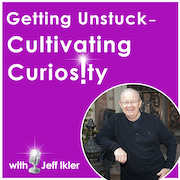"History doesn't repeat itself, but it often rhymes." —Mark Twain
And it rhymes for a reason.
Given the new administration’s flurry of activity over the past couple of weeks, you may find yourself saying, “I didn’t know anything about that,” if you missed the Executive Order that reestablished the President’s Advisory 1776 Commission. What’s that, you ask? Here’s a quote from the order itself.
The path to a renewed and confident national unity is through a rediscovery of a shared identity rooted in our founding principles. A loss of national confidence in these principles would place rising generations in jeopardy of a crippling self-doubt that could cause them to abandon faith in the common story that binds us to one another across our differences. Without our common faith in the equal right of every individual American to life, liberty, and the pursuit of happiness, authoritarian visions1 of government and society could become increasingly alluring alternatives to self-government based on the consent of the people. Thus it is necessary to provide America's young people access to what is genuinely inspiring and unifying in our history, as well as to the lessons imparted by the American experience of overcoming great national challenges. This is what makes possible the informed and honest patriotism that is essential for a successful republic.
Having read about the Commission's creation during President Trump’s first administration and the early attempts to build a curriculum2 around its goals, I fear it could lead to a whitewashing of our history—a sanitized version that emphasizes the founding aspirational principles underlying our historic documents at the expense of an honest retelling of our past.

A "patriotic" retelling of our past that focuses primarily on our aspirations can quickly de-emphasize the darker moments when we failed to live up to our principles. Students must understand those aspects of our past because, as future adults, they can’t avoid repeating them if they don’t know about them.
As a former high school history teacher, I feel like the figure in Edvard Munch's painting “The Scream” when this limited, “patriotic” approach to telling the story of our past is proposed. Honestly, it reminds me of the flag-waving version of our past that I received in 5th grade.
Good teachers know how to balance our aspirational principles with our accomplishments and missteps as a nation. I know because I did. The neighborhoods that fed my high school were simmering hotbeds of racism and trauma, and the emotions often boiled over into the hallways. Many of my kids already believed they had no future in “the land of the free and the home of the brave.” I could not have looked them in the eye if I had to focus primarily on our founding aspirations and accomplishments.
Good teachers know how to tell the whole story. They know how to develop informed critical thinkers. And we clearly need informed, critical thinkers. They need to be left to do the honest work of teaching about the past if we are to have a less divisive future.
This week’s podcast episode is about the teaching of history. My guest, Allan Winkler, Ph.D., history professor emeritus, and I examine a specific period in our past that highlights the challenge of balancing our aspirations as a people and our practices.
I hope you will listen in.
On my website: https://bit.ly/40LFw2s
Apple Podcasts: https://bit.ly/40TsrUL
Given the events of the past three weeks, you have to shake your head at the irony of this statement.
https://www.nbcnews.com/news/us-news/hillsdale-college-1776-curriculum-k12-education-conservative-rcna93397






Hi Jeff - I was thinking about you lately - you once told me that educational materials were curated based on local preferences for what was taught. (My words). With that ringing in my ears, I heard/read someone say that we need to bring back Civics lessons. While I agree with that, the question I have is what that content will consist of? I naively believed that history was history. I'm doubting that these days.
And, while we feel like we are shoveling sand against the tide I hold fast to this: the tide does turn.
Meanwhile, "In our darkest moments, we don't need solutions or advice. What we yearn for is simply human connection—a quiet presence, a gentle touch. These small gestures are the anchors that hold us steady when life feels like too much." [Ernest Hemingway]
Today is Valentine's Day! Don't just stand there; LOVE somebody!
And then resume the battle against evil because while we cannot eradicate it perhaps we can transform it.